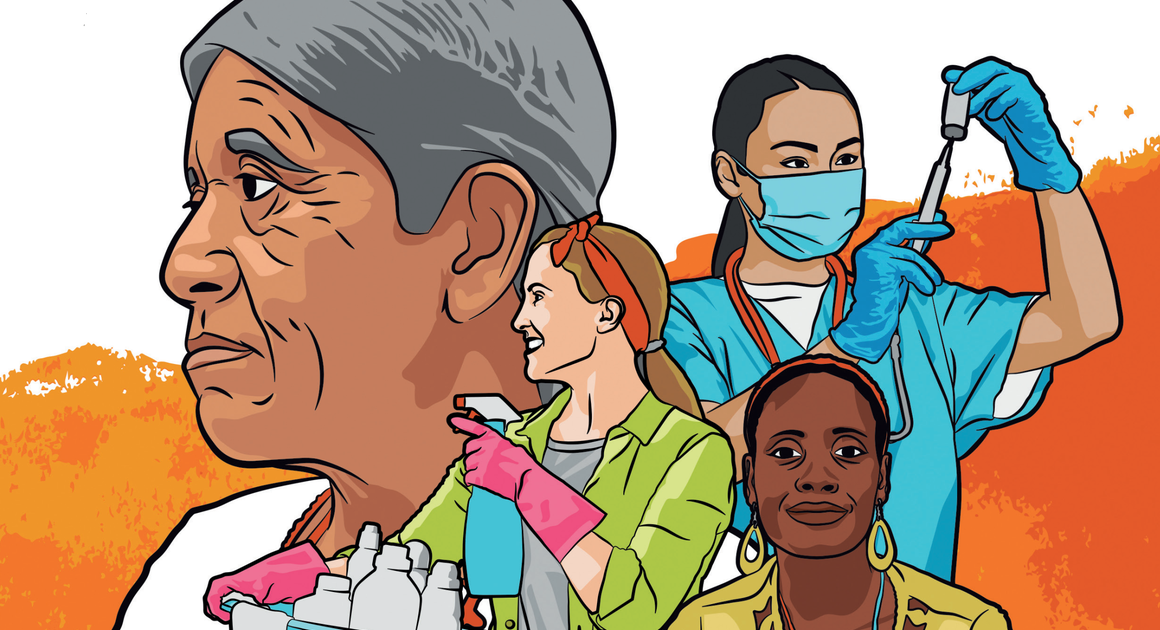Organic Law of Human Care Ecuador approves law guaranteeing human right to care

Care as a human right is advancing through its explicit recognition in the legislation of Ecuador, which has become the first country in the world to affirm it as the right of people to care, to take care of themselves and to be cared for, with the State as their guarantor. Previously, only the Constitution of Mexico City in 2017, stipulated that "every person has the right to care that sustains his or her life and grants him or her the material and symbolic elements to live in society."

Verónica Montúfar
The Organic Law on Human Care came into force in Ecuador last May 12, emphasizing the role of the State in the development, management, regulation and protection of this universal, inalienable and non-transferable right, guaranteed through public services.
A few days before President Guillermo Lasso's declaration of "cross death", a constitutional mechanism to dissolve the legislative power on the grounds of "serious political crisis and internal commotion", on May 17, 2023, the National Assembly approved this law in the second debate, after 8 months of preparation and discussion for its elaboration, where PSI was an important actor.
The new Ecuadorian law advances in a concrete way to legislate the necessary conditions for the full implementation of ILO Convention number 156 on workers with family responsibilities, ratified by Ecuador in 2013, by establishing the ownership of "working people", as well as determining as its purposes the provision of care leave and the construction of public policies to guarantee the right.
Other strong points that the Law leaves marked for the uncertain future of Ecuadorian politics, of a government about to expire and another that will take office next November, refer to:
The National System of Care and the articulation in the state steering role from the Ministries of Labor, Health, Education and Economic and Social Inclusion, as well as the coordination between all levels of central government and local governments.
The transformation of the sexual division of labor for the redistribution of care work and the integration of a human rights, intergenerational, intersectional, intercultural, human mobility and disability approach.
The harmonization of the labor regime for the exercise of the right to care and decent work for people who exercise the right in a paid or unpaid manner.
The guarantee of the State, through the Ministry of Economy and Finance, of the provision and timely disbursement of the necessary resources for the fulfillment of the obligations and responsibilities derived from the Law.
The elaboration of the Regulations of the Law.
In this regard, Rosa Aguilar of the National Federation of Workers of the Councils and Provincial Governments of Ecuador -FENOGOPRE and coordinator of the PSI National Women's Committee in Ecuador affirms that "the strength of our unions and women will be necessary to continue with the advocacy we have had so far and ensure that the Law's Regulations maintain the level of guarantees and do not reduce it, so we will be vigilant in proposing, pressuring and enforcing the Law".
Susana Barria, Andean Subregional Secretary of Public Services International stated that "This new legal framework goes beyond what is being proposed in other countries of the region because it clearly defines the role of the state as responsible for guaranteeing this new right as well as guaranteeing the provision of the necessary resources for public services to ensure compliance with this right. It is an important experience to motivate, in countries where there are advances such as Colombia and Peru, more solid changes."